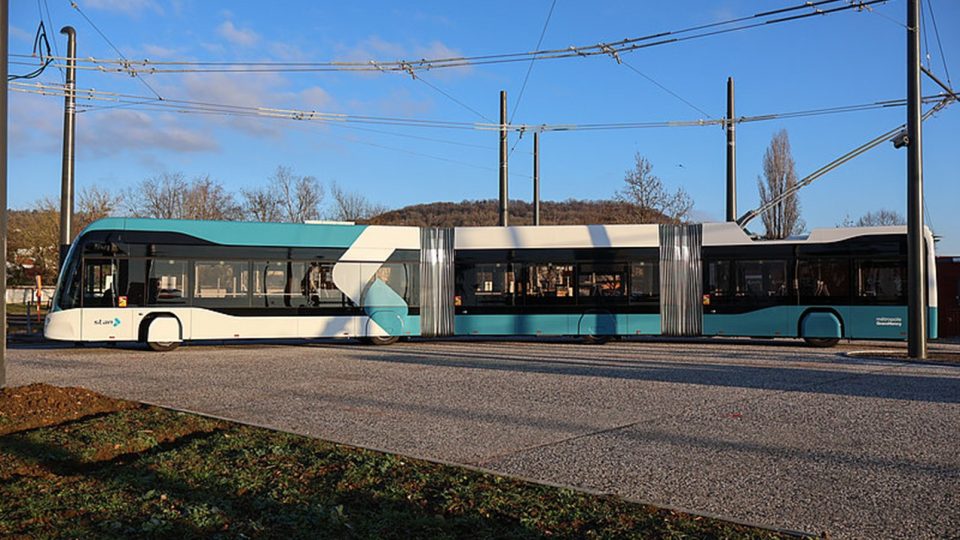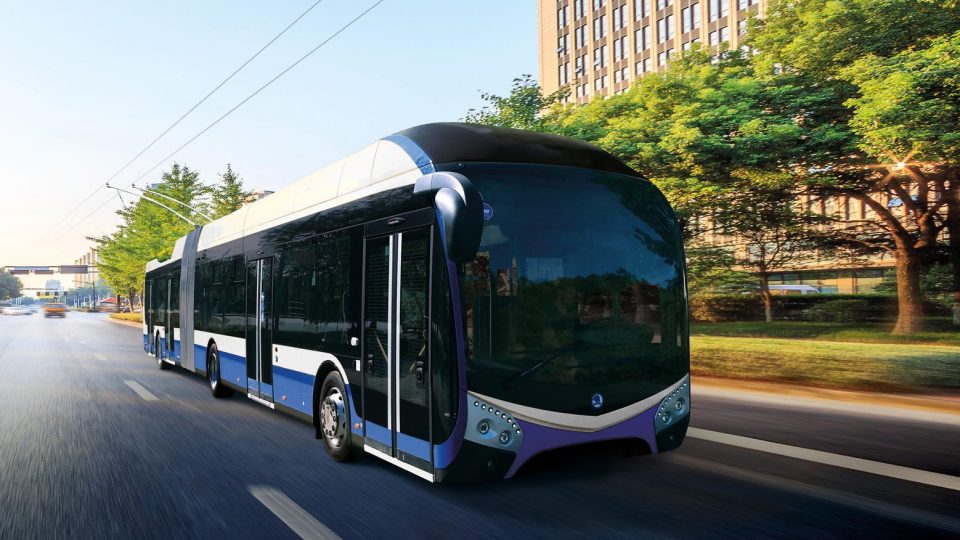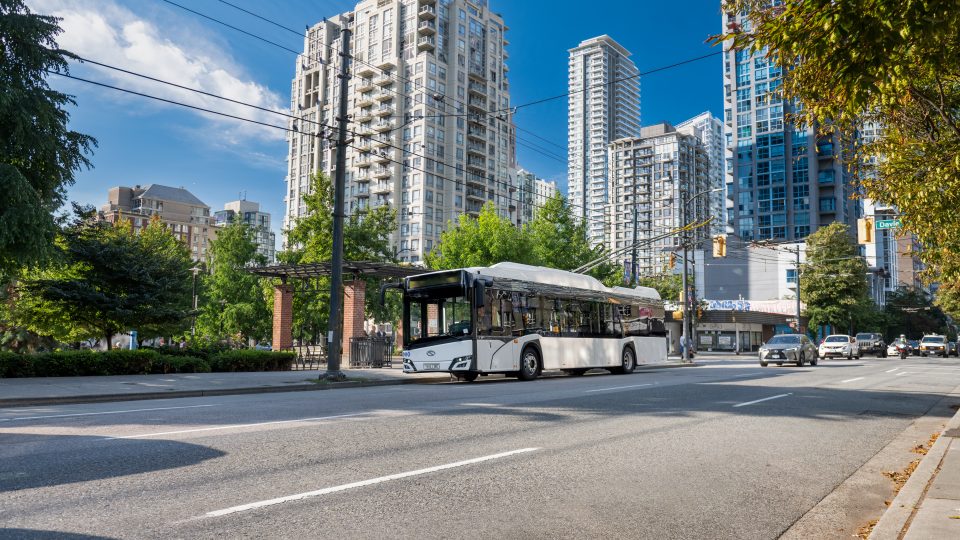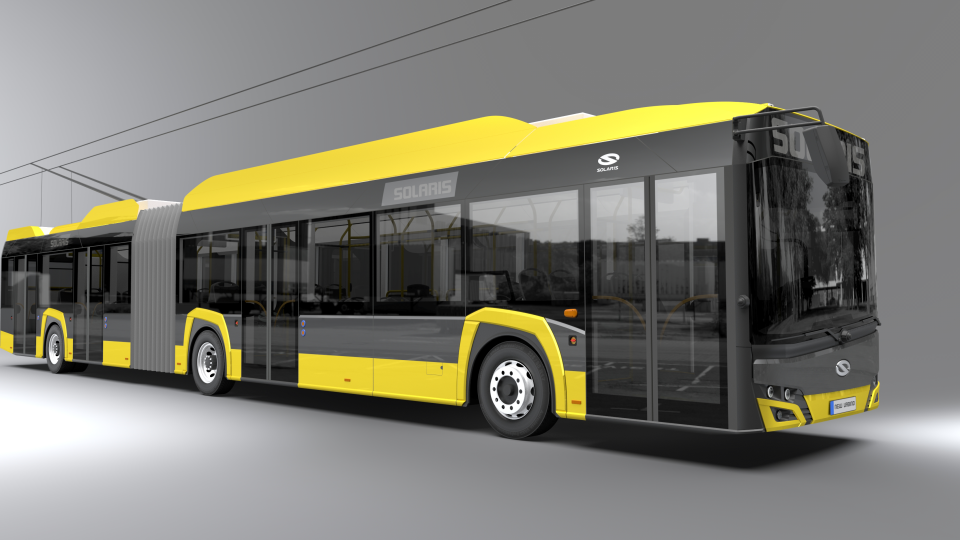Electric mobility in Lyon: oui!
Mobility in Lyon will soon be guaranteed only by ecological vehicles. Sytral Mobilitès, the mobility organising authority for the city of Lyon and the agglomeration (263 municipalities served, more than 1,800,000 inhabitants), owner of more than €5.2 billion in assets, is accelerating its fleet renewal and expansion policy, expanding its electric traction networks and renewing […]
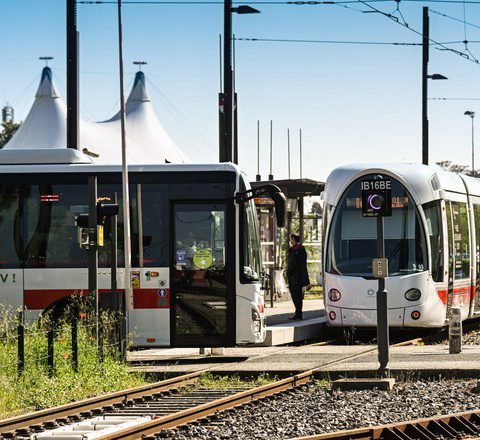
Mobility in Lyon will soon be guaranteed only by ecological vehicles. Sytral Mobilitès, the mobility organising authority for the city of Lyon and the agglomeration (263 municipalities served, more than 1,800,000 inhabitants), owner of more than €5.2 billion in assets, is accelerating its fleet renewal and expansion policy, expanding its electric traction networks and renewing its rolling stock. In fact, a contract was signed with the Swiss company Hess for the supply of new trolleybuses that will replace the entire trolleybus fleet.
TCL (Transport en Commun Lyonnais), the operator of the public transport network, has 143 trolleybuses, including 34 Hess Lightram DC 19, with two bodies, delivered in 2021, and 102 Irisbus Cristalis ETBs, of which 54 are 18-metre articulated, delivered between 2000 and 2010. The 34 Lightram already in service today work on the C lines (C as reinforced service lines): C11 (Saxe Gambetta-Laurent Bonnevay) and C 13 (Garage Blanche-Montessuy). The future trolleybuses will thus replace both the articulated Cristalis on lines C1, C2, C3 and the single-axle Cristalis currently used on lines C4, C14, C18, which will benefit from an increase in load capacity of more than 30 % with the new trolleybuses.
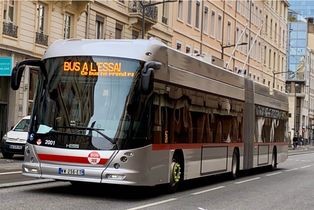
The vehicles will be equipped with battery packs and technology for progressive battery recharging, in addition to the now standard equipment, such as air conditioning, video surveillance, and customised and spacious interiors in the Hess tradition. The trolleybus lines already in service will be joined by lines C 5 ( Cordeliers/Centre Lyon-Vancia/Rilleux Semaines (alternating runs from Cordeliers) , north – east of the city), with runs every 10-11 minutes on average and a journey time of around 32-34 minutes, and C 25 ( Gare Part – Dieu – Saint Priest, with extended runs to Sogaris , south east), with runs every 13 minutes on average until 8.15 pm. By 2026, these routes and the BHNS (Bus a Haut Niveau de Service) Part Dieu – Sept Chemins line will be electrified and travelled by the new trolleybuses, which will gradually replace the thermal traction vehicles.
Bruno Bernard, President of Lyon Metropole and Sytral Mobilités, announced the signing of the contract: «In order to continue the ecological transition of our bus network and intensify our efforts to combat air pollution, Sytral Mobilités today approved the award of a new contract for IMC articulated trolleybuses to the company Hess . These trolleybuses will offer even greater capacity and comfort to all passengers. with this order, Sytral continues the renewal of the fleet by purchasing zero-emission vehicles, as in fact has been the case since 2020, with more than a hundred of electric or BioNGV vehicles have been put into service, and by 2026 there will be 400 ecologic vehicles»
Important news also for the tram service, which today comprises 7 lines, the network covering some 73 km. Sytral has announced the construction of two new lines, T9 (for which the preliminary study has been approved in october 2022) and T10, as well as the northern extension of line T6, which will be extended by 5.6 km with 10 new stops. Connecting the hospital complex (Hopitaux privè Est) with Doua , in the municipality of Villeurbanne, in about 20 minutes; the network will be extended by 24 km, and a new depot-workshop is planned to accommodate 44 43-metre cars, with a possible extension to accommodate a further 22 cars. Interesting is the study of the maintenance area, which will have 11 dedicated tracks, and several divisions specialising in the mechanical, electrical and electronic components of the vehicles.
«The choice of location fell on the site of the former Fagor-Brandt factories, which not only offers the necessary space, but is also an ideal location for the new site», said Bruno Bernard.
Construction work on the new depot will begin in 2024 and the facility will be operational in 2028. Particular attention will be paid to the health and safety conditions of the workers, as well as to integrating the site into neighbourhood life, limiting noise emissions, and preserving and integrating the available green areas.ù
(Stefano Alfano)


